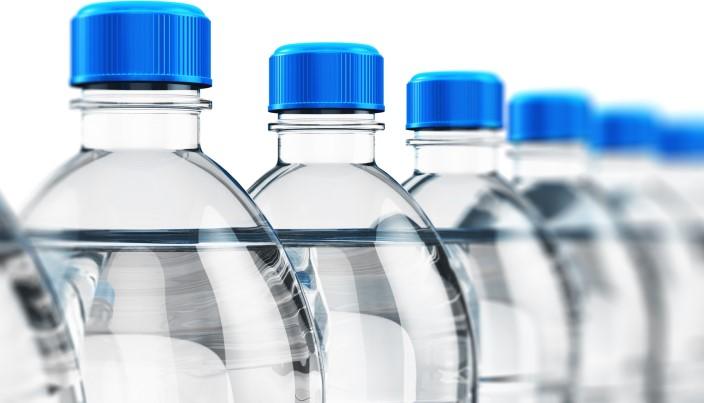Sibling nations, diverging paths
When Nigeria’s Super Eagles scored a goal against the Black Stars of Ghana during the semi-finals of the Unity Cup on May 28, 2025, at London’s Brentford Community Stadium, something unexpected happened. The Ghanaian DJ on duty cheekily blasted a popular Nigerian Afrobeats anthem.
The crowd erupted, some in laughter, others in utter amazement. One might argue the Ghanaian DJ should have known better than to celebrate with Nigerians against his home team. However, it was a light-hearted moment that reminded us of something deeper: these two West African nations share more than just geographical proximity. They share history, rivalry, and cultural influence. Yet, when it comes to consumer protection, product authentication, and traceability, they appear to be playing very different games. Whilst Ghana pushes ahead with digital compliance for public safety, Nigeria still struggles with faded or illegible labels, unverifiable NAFDAC numbers, and persistent risks of counterfeit products even on everyday products like sachet and bottled water.
Excise duty and digital safety: Ghana’s strategic use of QR codes
In Ghana, excise tax stamps are mandated on bottled water, alcoholic beverages and carbonated drinks. These stamps aren’t just tax tags; they’re QR-coded digital tools embedded directly onto the product, often on the bottle cap. A quick scan tells consumers the product’s origin, regulatory clearance and tax compliance..
Nigeria, in contrast, exempts bottled water from excise tax, creating a regulatory blind spot. While excise is now applied to carbonated drinks under the Finance Act 2021, bottled water remains outside the fiscal net, even as its safety & quality authentication remains challenging.
Dangerous waters: Why the issue is urgent
Sachet water, widely consumed in Nigeria, has long been linked to public health risks. According to THISDAY, unsafe sachet water has been cited in outbreaks of illnesses like cholera, dysentery, diarrhoea, and typhoid in Port Harcourt and beyond. In fact, studies confirm sources of harmful bacteria in sachets from commercial vendors in metropolitan Port Harcourt. These findings are backed by the shutdown of three unregistered sachet‑water factories in Port Harcourt due to hygiene violations by NAFDAC in mid-2024. Nonetheless, many consumers still rely on sachets often without means to verify safety, due to faint or fake NAFDAC numbers and an absentee QR code verification system that provides immediate feedback before a buying decision.
According to the World Health Organisation, safe and sufficient water facilitates the practice of hygiene, which is a key measure to prevent not only diarrhoeal diseases but also acute respiratory infections and numerous neglected tropical diseases.
In Ghana, supermarkets and neighbourhood stores reject products that lack QR labels. In Nigeria, lax quality & safety control measures mean counterfeit products can flow freely in clubs, supermarkets and street corners undetected and pose serious public health risks.
Read also: 10 everyday items you did not know have expiry dates
A wider crisis: Fake alcohol, risky cosmetics
NAFADC has occasionally raided markets and destroyed seized fake alcoholic beverages and carbonated drinks based on tip off, but the problem has persisted regardless. Some consumers now resort to drinking only water at public events, occasions, clubs, etc., for fear of injuring their health, and even the water too may not be safe!
It doesn’t stop at drinks. Imported beauty care products, creams, lotions, and and perfumes flood Nigerian
markets, often bearing vague inscriptions like “Produced and Marketed for” with no traceable address or QR data in violation of international product transparency standards,, which puts public health at risk.
What Nigeria needs: A unified digital window
Following the launch of the Single Window in 2024 and the planned phased implementation of the project, there is no better time to mirror or consider what Ghana has achieved in trying to stamp out counterfeited consumer goods by digitally verifying all consumable goods through QR codes. This practice will enhance consumer safety and public health, reduce counterfeit products in the market and supportAfCFTA implementation by improving cross-border product verification, trust, and regional trade compliance.
Countries like Ghana have already laid the groundwork. Global brands like Starbucks go even further, allowing customers to scan a QR code on their coffee cup and trace the product back to a cooperative in Ethiopia, with added assurance of fair-trade certifications, ethical sourcing, and quality control data. It’s not just about where the coffee came from; it’s about how it was grown, who grew it, and whether it passed global quality standards. If a cup of coffee in Seattle can be traced to Sidama or Yirgacheffe with verified quality markers, then a bottle of table water in Abuja should be traceable to a licensed bottling plant in Lagos complete with NAFDAC clearance, water treatment certification, and production batch testing and authentication.
This dual function: traceability and product quality authentication, is what’s missing from Nigeria’s current system. We don’t just need to know where a product came from; we need to be sure it’s safe, legal, and of acceptable quality. Without both, counterfeiters will continue to thrive, and trust in the market will remain dangerously low.
Leonard Ohakpugwu, MBA, CSCP, ACA, CIPS is a procurement and supply chain expert with over a decade and a half experience in FMCG and manufacturing industries. He is currently pursuing a PhD in Trade and Development Finance and is passionate about the impact of regulatory systems on African markets, public policy, governance & sustainability. Email:[email protected], +2348124029826

